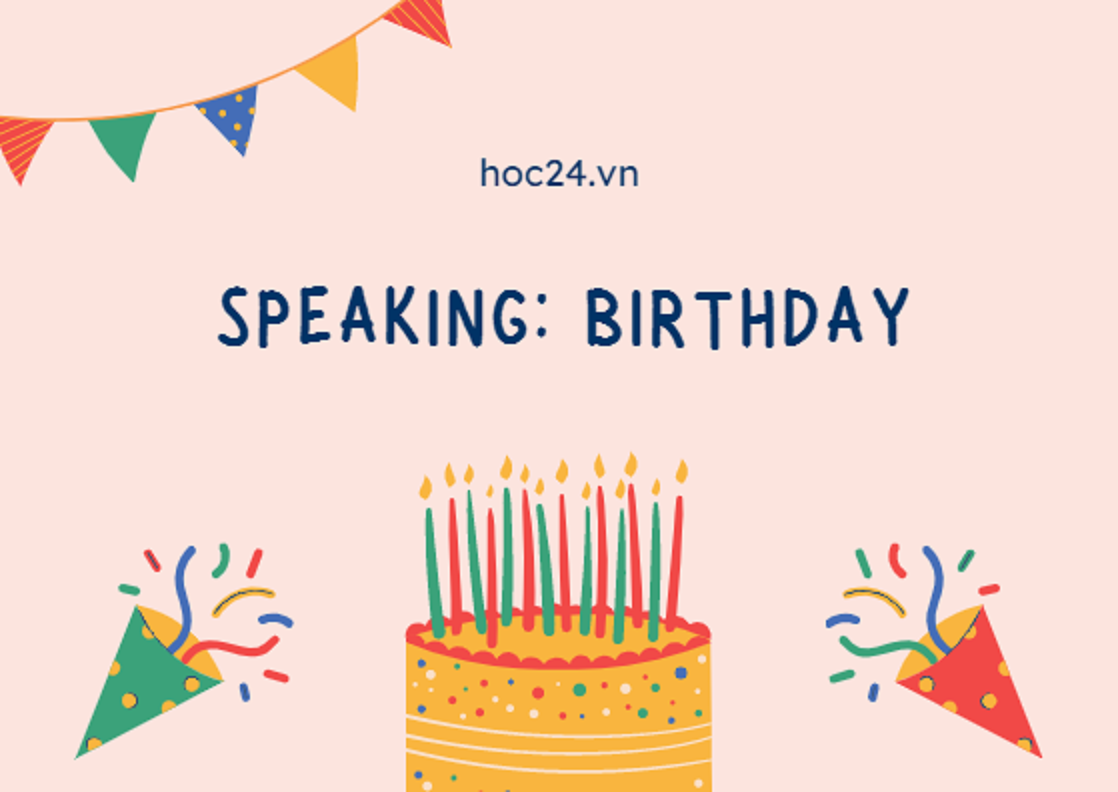Read the following passage and mark the letter A, B, C, or D on your answer sheet to indicate the correct answer to each of the questions from 36 to 42. In Africa, people celebrate with joy the birth of a new baby. The Pygmies would sing a birth-song to the child. In Kenya, the mother takes the baby strapped to her back into the thorn enclosure where the cattle is kept. There, her husband and the village elders wait to give the child his or her name. In West Africa, after the baby is eight days...
Đọc tiếp
Read the following passage and mark the letter A, B, C, or D on your answer sheet to indicate the correct answer to each of the questions from 36 to 42.
In Africa, people celebrate with joy the birth of a new baby. The Pygmies would sing a birth-song to the child. In Kenya, the mother takes the baby strapped to her back into the thorn enclosure where the cattle is kept. There, her husband and the village elders wait to give the child his or her name.
In West Africa, after the baby is eight days old, the mother takes the baby for it's first walk in the big, wide world, and friends and family are invited to meet the new baby. In various African nations, they hold initiation ceremonies for groups of children instead of birthdays. When children reach a certain designated age, they learn the laws, beliefs, customs, songs and dances of their tribes, Some African tribes consider that children from nine to twelve are ready to be initiated into the grown up world. They may have to carry out several tests.
Masai boys around thirteen years old to seventeen undergo a two stage initiation. The first stage lasts about three months. The boys leave their parents' homes, paint their bodies white, and are taught how to become young warriors. At the end of this stage, they have their heads shaved and they are also circumcised. The second stage, the young warriors grow their hair long and live in a camp called a manyatta where they practice hunting the wild animals that might attack the Masai herds. This stage may last a few years. When they are ready, they will marry and become owners of large cattle herds like their fathers.
The girls are initiated when they are fourteen or fifteen. They are taught by the older women about the duties of marriage and how to care for babies. Soon after that they are married and lead a life similar to that of their mothers.
Question 42: What do the girls have to learn in their initiation?
A. How to take care of her husband and family in the future.
B. The responsibilities of marriage and the way to look after their children.
C. Homemaking and childbearing.
D. How to lead a life after marriage and giving birth to a child.


BIRTHDAYS IN ENGLAND
Birthdays are celebrated with friends and family, and are usually geared towards children although adults also enjoy celebrating their birthdays. A lot of people who have young…( 1 ).CHILDREN.. no longer have birthday parties at home.Now they go to fast-food…( 2 )RESTAURANT… like McDonald’s or Wacky Warehouse because children’s playgrounds are there. Also …( 3 )THEY…hold them in pubs or community centers which can hold more guests.
Food served at these parties usually…( 4 )INCLUDES…a birthday cake, which is sometimes called “ Fortune Telling Cake” because small charms are mixed into the batter before the cake is.. BAKED.( 5 )…These little objects all have symbolic meanings. For instance, a slice of cake with a coin in it means you will be…RICH ( 6 )….Trifle, sausage rolls, cheese and pineapple on a stick, cocktail sausages and sandwiches are other…FAVOURITE( 7 )…party foods. Today’s popular birthday gifts might be computer games like Nintendo, Sony or Sega…( 8 )…BESIDES the traditional gifts of books or clothing or money.